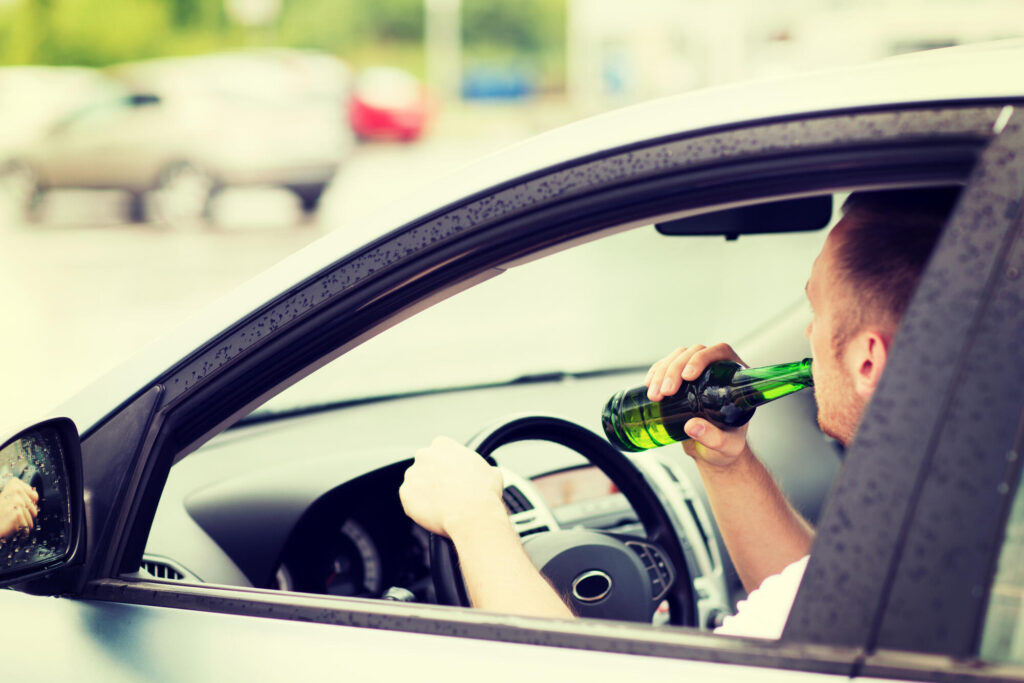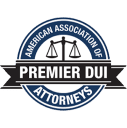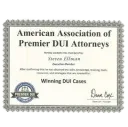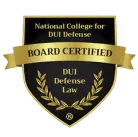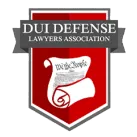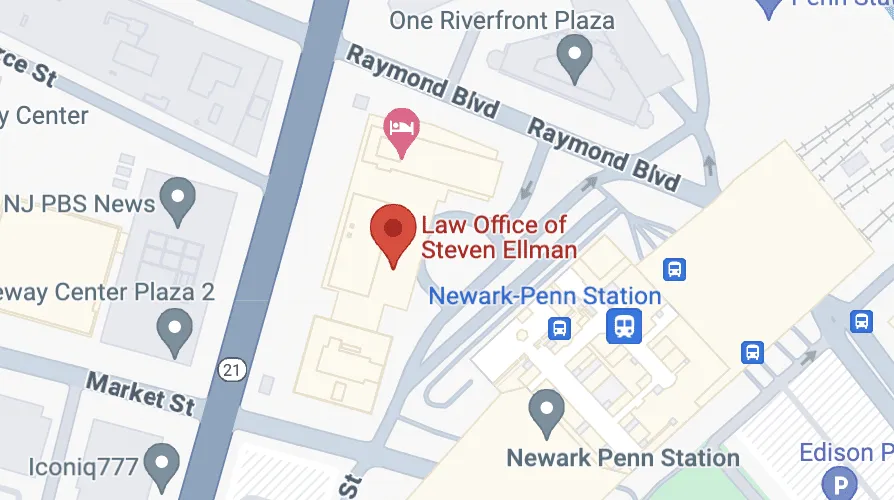Driving While Intoxicated in NJ: What You Need to Know
Stay informed about driving while intoxicated in NJ. Learn about laws, penalties, and defense strategies. Click to understand your rights and options!
In New Jersey, there are about 26,500 DWI and related offense charges every year, according to the New Jersey Department of Human Services.
Driving while intoxicated (DWI) is a serious offense in New Jersey with far-reaching legal, financial, and personal consequences. Whether you’re a resident, visiting the Garden State, or a concerned loved one, understanding New Jersey’s DWI laws is essential to protecting yourself and others on the road.
This guide covers everything you need to know about driving while intoxicated in New Jersey, including definitions, penalties, legal procedures, and how to get help if you’re facing the rigors of NJ intoxicated driving laws.
What Constitutes a DWI in New Jersey?
In New Jersey, the term DWI (Driving While Intoxicated) is used interchangeably with DUI (Driving Under the Influence). Both refer to operating a motor vehicle while impaired by alcohol or drugs, whether illegal, prescription, or over-the-counter substances.
Here are the legal limits to be aware of:
- Blood Alcohol Concentration (BAC) of 0.08% or higher for drivers age 21 and over
- 0.01% or higher for drivers under 21 (zero-tolerance policy)
- 0.04% or higher for commercial vehicle drivers
However, you can still be charged with a DWI even if your BAC is below 0.08% if the officer believes your driving is impaired.
DWI Based on Drug Use
Driving under the influence of drugs (illegal substances, cannabis, or even legally prescribed medications that impair your ability to drive) is also a DWI offense in New Jersey. Unlike alcohol-related cases, drug-related DWIs don’t rely on a BAC test. Instead, police may use a Drug Recognition Expert (DRE) to assess your impairment level.
As with all kinds of intoxicating substances, it’s better to avoid them when getting ready to go behind a wheel, no matter how good of a driver you think you are, or how well you think you can handle the intoxicating substance.
First Offense NJ DWI Penalties
New Jersey takes a strict stance on DWIs, even for first-time offenders. The severity of penalties depends on your BAC level and whether you refused to take a breath test.
BAC of 0.08% to 0.10%:
- Fine of $250-$400
- Up to 30 days in jail
- License forfeiture until an ignition interlock device (IID) is installed (mandatory for 3 months)
- 12-48 hours at an Intoxicated Driver Resource Center (IDRC)
- Auto insurance surcharge of $1,000 per year for 3 years
BAC of 0.10% to 0.15%:
- Fine of $300-$500
- Same as above, but IID required for 7 to 12 months
BAC of 0.15% or higher:
- Mandatory license suspension for 4-6 months
- IID required for 9 to 15 months after license restoration
Second Offense NJ DWI Penalties
If you’re convicted of a second DWI offense within 10 years of the first, penalties increase significantly:
- Fine of $500-$1,000
- Jail time of 48 hours to 90 days
- 1-2 years driver’s license suspension
- 30 days of community service
- IID during and after license suspension
- Mandatory IDRC attendance
- Insurance surcharge continues
Third or Subsequent Offenses
A third DWI conviction brings severe consequences:
- Fine of $1,000
- Mandatory 180 days in jail (up to 90 days may be served in an inpatient rehab)
- 8-year license suspension
- Mandatory IID for 2-4 years post-suspension
- Insurance surcharge and lifetime criminal record implications
Refusing a Breath Test (Implied Consent Law)
New Jersey has an implied consent law, meaning that by driving on NJ roads, you’ve automatically agreed to take a chemical test if suspected of DWI.
Refusing a breath test results in:
- $300-$1,000 fine depending on the offense number
- License suspension (up to 8 years for third refusal)
- Mandatory IID installation
- IDRC participation
- Insurance surcharge
Refusal charges are separate from a DWI, so you can be charged with both and face double penalties.
What to Expect During a DWI Stop in New Jersey
When you are stopped for a suspected DWI in New Jersey, there are certain steps or processes to expect. Here they are:
- Traffic Stop: Officers may pull you over if they suspect impairment or observe traffic violations.
- Field Sobriety Tests: Standard tests like walking a straight line, standing on one leg, or the horizontal gaze nystagmus may be administered.
- Breathalyzer Test: A device measures your BAC.
- Arrest: If the officer has probable cause, you’ll be arrested and taken to a police station for further testing or booking.
- Charges Filed: You’ll be charged and scheduled for a court date.
Ignition Interlock Device (IID) Requirements
New Jersey has expanded its use of Ignition Interlock Devices (IIDs). If you’re convicted of DWI, you’ll likely be required to install an IID in your vehicle, even for a first offense.
How It Works:
- The IID requires you to blow into a device that measures your BAC before starting the car.
- If alcohol is detected, the vehicle won’t start.
- Periodic “rolling retests” are required while driving.
You must pay for installation, monthly maintenance, and removal, often totaling $1,000 or more. New Jersey DUI fines alone will get you financially destitute.
Impact on Insurance Rates
After a DWI, expect your auto insurance premiums to skyrocket. Some providers may drop your coverage, forcing you to find high-risk insurance.
You’ll also pay a $1,000 annual insurance surcharge for 3 years, separate from your premium.
Will a DWI Appear on My Record?
Yes. In New Jersey, a DWI is a traffic offense, not a criminal offense, but it still goes on your driving record permanently.
It does not result in a criminal record (unless other criminal offenses occurred), but it:
- Can affect employment, especially jobs that involve driving
- Remains relevant for future DWI penalties
- Cannot be expunged
It’s highly important that you avoid getting a DWI on your record. Using DWI defense strategies by hiring a lawyer experienced in the matter is the best first step. They will be able to guide you as to the best way to deal with the DWI charge.
DWI and Employment Consequences
Many employers conduct background checks and driving history reviews. A DWI may:
- Disqualify you from certain jobs (especially CDL holders)
- Result in disciplinary action
- Impact professional licenses (nurses, teachers, attorneys)
If you drive for a living, a DWI can be career-ending.
DWI and Out-of-State Drivers
If you’re licensed in another state but charged with a DWI in New Jersey, then this is what can happen:
- NJ will report the conviction to your home state.
- Your license may be suspended in both states.
- Penalties depend on reciprocity laws between NJ and your state.
Underage DWI (Zero-Tolerance Law)
The joys of learning and getting to drive when you first turn 16 are innumerable. But it’s important not to let all that freedom get to your head. If you are underage, then you need to be even more careful about driving while drunk.
Drivers under 21 face harsh penalties for any detectable alcohol in their system:
- 30-90 day license suspension
- 15-30 days of community service
- Mandatory alcohol education program
This applies even if the BAC is below 0.08%.
Can I Fight a DWI Charge?
Yes. A DWI charge isn’t an automatic conviction. A skilled DWI defense attorney can review the evidence and may challenge:
- The legality of the traffic stop
- Accuracy of the breath test
- Procedural errors by law enforcement
- Field sobriety test reliability
- Medical conditions that mimic intoxication
In some cases, charges may be reduced or dismissed entirely. That’s why hiring a DWI defense attorney right away can be such a lifesaver. They can start building up evidence or witnesses on your behalf, so you don’t have to face the consequences of a DWI charge on your record for a lifetime.
Alternative Sentencing and Treatment
For eligible individuals, rehabilitation and educational programs may be options in place of harsher penalties. This is more common for first-time offenders and those struggling with substance use disorders.
Examples include:
- Attendance at IDRC
- Inpatient rehab as a substitute for some jail time
- Sobriety programs or treatment court
Tips to Avoid a DWI in New Jersey
Do you want to avoid a DWI charge in New Jersey? Here are some tips to assist:
- Designate a sober driver before heading out.
- Use rideshare apps like Uber or Lyft.
- Stay overnight if you’ve been drinking away from home.
- Don’t assume you’re “okay to drive” after just one or two drinks; BAC varies by body type and metabolism.
- Know that even legal cannabis or prescription drugs can impair your ability to drive.
Never, ever drive when you have had something to drink, no matter how sober you think you are. Depending on your metabolism that day, hormones, the amount of food you consumed, and so many other factors, your BAC levels could be safe or not.
It’s better to avoid all that by designating a sober driver or, easier yet, getting a taxi. Think of it as an investment in your future, instead of an expense.
Driving While Intoxicated in NJ – Avoid It At All Costs
Driving while intoxicated in New Jersey is a serious offense with long-term consequences. The penalties are steep-even for first-time offenders-and the state aggressively prosecutes DWI cases to ensure road safety.
If you have been charged and need help with a DWI charge, then the Law Office of Steven Ellman, with 39 years of experience in the courts, can assist you in fighting back. We will stand by you and stand for you in the court of law.
Schedule a free consultation with our team today and figure out what your options are. Don’t let a DWI charge ruin your life.

